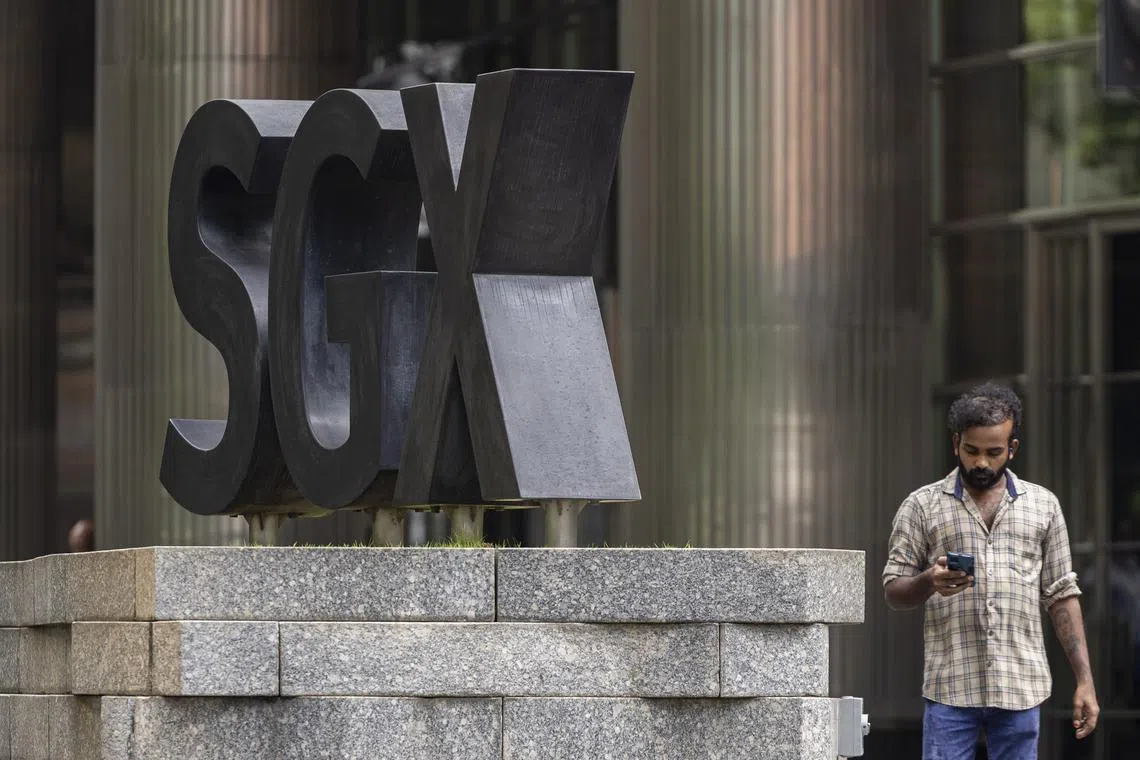Singapore shares up again, lifted by retail sales growth; STI rises 0.3%
Sign up now: Get ST's newsletters delivered to your inbox

Across the broader market, advancers outnumbered decliners 297 to 218.
PHOTO: ST FILE
Ranamita Chakraborty
Follow topic:
SINGAPORE - The Straits Times Index (STI) settled higher on Aug 5 for the second consecutive session, supported by stronger-than-expected retail sales figures for June.
Retail sales rose 2.3 per cent year on year that month, indicated data released by the Department of Statistics. The growth was broad-based across industries and exceeded the median estimate of 2 per cent by private sector economists polled by Bloomberg.
The STI closed up 0.3 per cent or 11.35 points at 4,208.58. Across the broader market, advancers outnumbered decliners 297 to 218, after 1.6 billion shares worth $1.4 billion changed hands.
The biggest gainer on the index was Thai Beverage, rising 2.2 per cent or one cent to 47 cents.
At the bottom of the index was CapitaLand Ascendas Reit, which fell 1.8 per cent or five cents to $2.75. The decline followed the real estate investment trust’s announcement of a 2 per cent year-on-year decrease in first-half revenue, which fell to $754.8 million.
This was primarily due to the divestment of five properties across Australia, Singapore and the US, as well as the planned decommissioning of a UK property slated for redevelopment in June 2024.
The trio of local banks ended the day mixed, with DBS Bank rising 0.7 per cent or 35 cents to $48.24 and OCBC Bank gaining 0.5 per cent or eight cents to $16.98. However, UOB finished flat at $36.37.
OCBC chief economist Selena Ling noted that the recently released retail sales figure fell short of her forecasted 2.7 per cent growth. She attributed the softer momentum to the June school holidays, when many Singaporean families travelled overseas to “take advantage of improved purchasing power” with the Singapore dollar’s strength.
Looking ahead, she cautioned that input cost inflation in Singapore has reached a six-month high while selling prices remain largely unchanged.
“The latter suggests that margin erosion could be a theme to watch for the months ahead, particularly when reciprocal tariffs kick in and there could be reverberations through the global supply chains, since competitive pressures may be limiting the corporates’ ability to pass on rising costs during a period when demand conditions is softening,” Ms Ling added.
Meanwhile, across the region, major indexes closed higher. The Kospi rose 1.6 per cent and the Nikkei 225 added 0.6 per cent.
Hong Kong’s Hang Seng Index ticked up 0.7 per cent, and the Bursa Malaysia Kuala Lumpur Composite Index edged 0.8 per cent higher. THE BUSINESS TIMES

